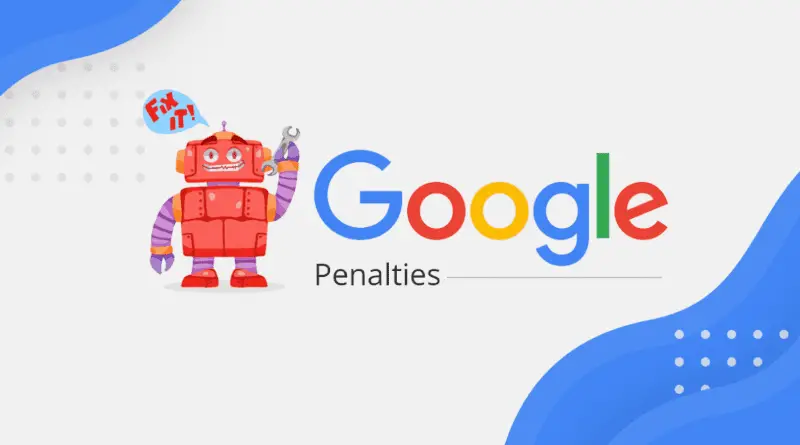Google Penalties, their types, and the ways to get rid of them
Suppose you open your Google analytics dashboard today and witness that your traffic has dropped. How would you feel? Obviously not good. This can happen if Google penalizes your website. If you are of the notion that Google penalties occur only when the search engine giant changes its algorithm, then let us correct you here. Even when you are reading this, there might be ample sites going through penalties besides no algorithm update.
What is the reason behind it? The most common ones are Spamming practices like poor content or stuffing keywords.
Sometimes it is also because of negligence as you didn’t pay attention to the backlinks to your site. Before we move on to how to protect your website from these penalties, let us find out various types of penalties.
Manual:
Many of the Google penalties are imposed automatically. But there are several of them that search engine giant’s human reviewers impose. When your site becomes the victim of the manual penalty, you will get an alert on the Google Console dashboard plus an email alert.
Algorithmic:
Google keeps on upgrading its core algorithm to refine search quality and results. For example, google penguin update, also known as webspam update, focused on cutting out websites that used spammy link-building techniques. There are many other updates from Google that have rolled out since its inception in 1992.
So, how to identify this penalty? You would not get any emails. Hence, the solution here is to keep track of your traffic. If you witness that your site’s traffic is declining unexpectedly, the reason could be an algorithmic penalty.
This was a brief about the types. So, what are the ways to get rid of them and protect your site?
Keep track of your link profile:
What are the link-building practices that are spammy as per Google? Link exchanges, purchasing and buying links and article submissions are some of the common practices that Google advises not to indulge in. However, these practices are not spammy but rather devalued by Google.
In other words, Google has no way to know which links are exchanged, which ones are bought. Besides, article submission, if done rightly, is still a great way to build high-quality backlinks for a website that can help improve SERP rankings.
But sometimes these practices give rise to unnatural-looking links that are easily identifiable by Google bots. If your site is caught red-handed in such black hat link-building practices, google will definitely penalize you. So, earn the links through natural ways. Additionally, ensure that the sites that are linking to your site should match your niche.
Fight with the negative SEO:
Are you aware that your competitors can get you penalized? Isn’t it shocking? Yes, they can do that through negative SEO on your webpage. The most common way to do this is to get as many spammy sites as they can to link to you. If google finds this, it will think that your site is of low quality. This will negatively impact your rankings.
What is the solution here? If you are unsure of the best SEO Practices, you can always rely on outsourcing an SEO team. Why and how to outsource SEO team? The reasons are many as they will help you in saving the marketing budget and retaining the clients. Talking about how to outsource it, you can find SEO service providers depending upon your budget and checking the past records of the team.
To sum it all up
Experiencing penalties from Google is scary. But you don’t have to fear that. It goes only after those sites that try to manipulate the rankings. Hence, try to build your link profile through honest ways, and you will be good to go!




